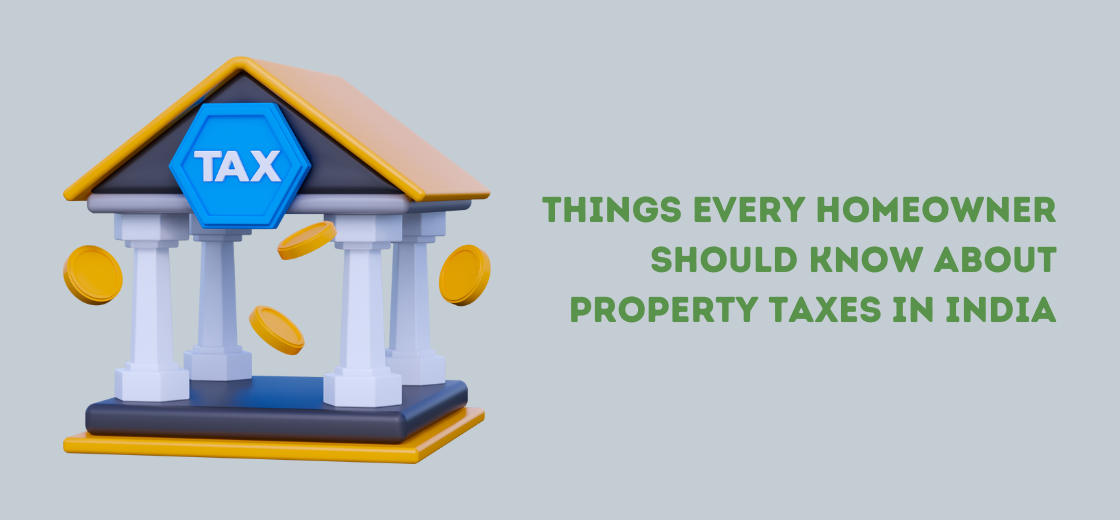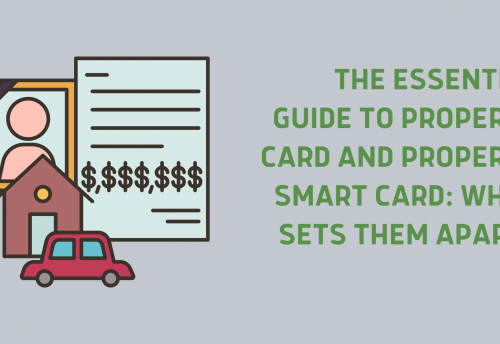
As a homeowner in India, property taxes can often feel like an overwhelming and complicated subject. However, understanding the ins and outs of property taxes is crucial for both saving money and ensuring you’re paying the correct amount. But understanding how these taxes work is crucial for managing your finances and avoiding any unwanted surprises. From exemptions to deadlines, there are several things every homeowner should know about property taxes in India.
In this blog post, we’ll be breaking down everything you need to know about property taxes in India – from what they are, to how they’re calculated, and most importantly, how you can minimize their impact on your budget that you need to know so that you can be confident and informed when it comes time to pay your property tax bill. So whether you’re a seasoned homeowner or just starting on your buying journey, read on for some essential tips and tricks that will help you navigate the world of Indian property taxes with ease!
What are Property Taxes?
Property taxes in India are levied by the government on the value of your property. The tax is calculated based on the value of your property and is payable every year.
If you own a property in India, it is important to be aware of the different types of taxes that you may be liable for. Property taxes are one of the most common types of taxes levied on homeowners in India. The amount of property tax you will need to pay will depend on the value of your property. The tax is usually calculated as a percentage of the value of your property. In some cases, you may also be required to pay a flat rate property tax.
Property taxes are used to fund various public services such as schools and roads. They are also used to finance local governments. If you are planning to purchase a property in India, it is important to factor in the cost of property taxes. This will help you budget for your new home and ensure that you are not surprised by any unexpected costs.
Who Pays Property Taxes in India?
In India, property taxes are imposed by the local government on the owner of the property. The tax is based on the value of the property and is paid annually. Property taxes are used to fund public services such as schools, roads, and garbage collection.
Homeowners are responsible for paying property taxes. If you fail to pay your property taxes, the local government can take legal action against you, including seizing your property. Therefore, it is important to be aware of your responsibility to pay property taxes and to budget for them accordingly.
How are Property Taxes Calculated in India?
In India, property taxes are calculated based on the value of the property. The value of the property is determined by the government’s assessment of the property’s worth. The tax is then calculated based on the value of the property. The tax rate varies depending on the municipality in which the property is located.
When are Property Taxes Due in India?
The Indian property tax system is governed by the Municipal Corporation Act. Property taxes are levied and collected by local municipal authorities on behalf of the state government. The tax is based on the annual rental value of the property, as determined by the municipality.
The due date for property taxes varies from one municipality to another. However, most municipalities require taxpayers to pay their property taxes by March 31st of every year. Interest and penalties may be charged if the taxes are not paid by the due date.
Some municipalities allow taxpayers to pay their property taxes in installments. If this option is available, it will be noted on the tax bill. Installment payments are usually due on March 31st, June 30th, September 30th, and December 31st of each year.
Exemptions and Deductions for Property Taxes in India
Under the Indian Income Tax Act, of 1961, certain types of property are exempt from taxes. These include agricultural land, self-occupied residences, and commercial properties that are used for business purposes. Deductions are also available for properties that are rented out or leased.
Penalties for Late Payment of Property Taxes in India
If you’re a homeowner in India, it’s important to be aware of the penalties for late payment of property taxes. Property taxes are typically due annually, and if you don’t pay on time, you may be subject to interest and/or penalties.
The amount of interest and penalties you’ll owe will depend on your municipality’s late payment policies. In some cases, the interest may be as high as 18% per year. And, in addition to the interest, you may also be required to pay a late fee. This late fee is usually a percentage of the total tax bill, and it can add up quickly.
If you’re having difficulty paying your property taxes on time, contact your municipality to see if there are any options for payment plans or assistance programs. It’s better to try and work something out with your municipality than to let your property taxes go unpaid – otherwise, you may end up owing a lot of money in interest and penalties.
Conclusion
Property taxes in India are an important source of income for the government and should not be ignored by homeowners. Understanding how your property tax is calculated and making sure you pay it on time can help you avoid fines or legal action for non-payment. Taking advantage of any exemptions offered to certain types of properties or incomes can also save you money in the long run. Every homeowner needs to stay informed about their local property taxes so that they can make sound financial decisions when it comes to their real estate investments.




Leave a Reply